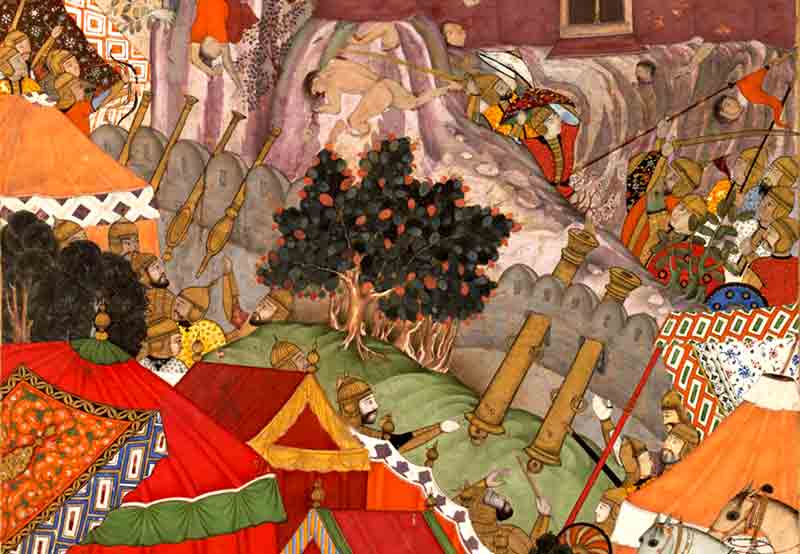Etymology
Hindu-Killer
Hindu Kush is generally translated as 'Killer of
Hindu' or 'Hindu-Killer', due the dangerous passes located in those mountains. Boyle's Persian-English dictionary indicates that the suffix -
koš [koʃ] is the present stem of the verb 'to kill' (
koštan کشتن). According to linguist
Francis Joseph Steingass, the suffix -
kush means 'a male; (imp. of kushtan in comp.) a killer, who kills, slays, murders, oppresses as
azhdaha-kush.'
The name may be a reminder of the days when
slaves from the Indian subcontinent died in the harsh weather typical of the Afghan mountains while being taken from India to
Turkestan. In his travel memoirs about Khorasan, the 14th-century Moroccan traveller
Ibn Baṭṭuṭa mentioned crossing into India via the mountain passes of the Hindu Kush. In his
Rihla, he states that the name of the mountain range translates to 'Hindu-slayer' due to slaves from India dying there:
After this I proceeded to the city of Barwan, in the road to which is a high mountain, covered with snow and exceedingly cold; they call it the Hindu Kush, that is Hindu-slayer, because most of the slaves brought thither from India die on account of the intenseness of the cold.
— Ibn Batutta, Chapter XIII, Rihla – Khorasan
Geographer
Alexander von Humboldt (1769–1859) states that it can be learned from his work that the name only referred to a single mountain pass upon which many Indian slaves died of the cold weather.Although the first recorded use of the name dates from 1000 CE, scholar Ervin Grötzbacht argues that the name is "missing from the accounts of the early Arab geographers and occurs for the first time in Ibn Baṭṭuṭa (ca. 1330)".
Alternate theories
Several other theories have been propounded as to the origins of the name
Hindu Kush. According to
Hobson-Jobson, the name might be a corruption of
Indicus Caucasus, with another explanation mentioned first by
Ibn Batuta remaining popular despite doubts upon it, and the modification of the name by some later writers into Hindu
Koh is factitious and reveals nothing on the name's origin.
According to Nigel Allan, the term
Hindu Kush has been commonly seen to mean 'Hindu killer', but two alternate meanings are 'sparkling snows of India' and 'mountains of India', with
Kush possibly being a soft variant of the Persian
Kuh ('mountain'). Another theory suggests the word 'Hindu' in
Hindu Kush is derived from the same root as
sindhu, meaning 'river', while Kush is a variant of the Persian word for mountain. Allan states that, to Arab geographers, Hindu Kush was the frontier boundary where
Hindustan started. Another possibility is that the name may be from the ancient
Avestan language, with the meaning 'water mountain'.
Some 19th century encyclopaedias and gazetteers state that the term
Hindu Kush originally applied only to the peak in the area of the
Kushan Pass, which had become a centre of the
Kushan Empire by the first century.





 Here are you calling me an "Islamist" and here is
Here are you calling me an "Islamist" and here is 